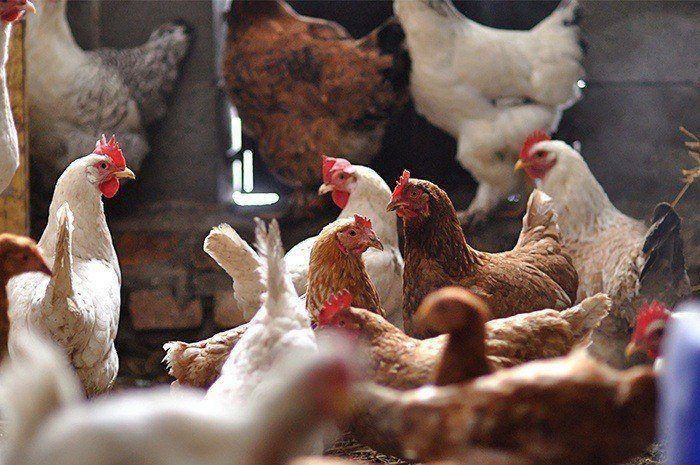If You Think 'Cage-Free' Eggs Come From Free-Ranging Chickens, Think Again
The majority of the world's egg-laying hens are kept in restrictive "battery cages," confining them to spaces so small that they are unable to spread their wings or even stand up straight. The birds are so densely packed and underfed that their beaks are clipped and they're kept in almost complete darkness (chickens prefer bright light) to stave off cannibalism. The Humane Society estimates that 90 percent of U.S. egg-laying hens are raised in this manner.
Undercover footage has brought these brutal conditions to the public's attention, and many consumers have demanded that their eggs now come from "cage-free" hens. Fast-food chains such as McDonalds, Panera Bread, and Taco Bell have recently voiced commitments to convert to cage-free eggs in the near future. But you should be skeptical when this trendy term is thrown around — here's why.
The United States Department of Agriculture doesn't regulate "cage free" very strictly. In order for eggs to be deemed cage-free by the USDA, they must "be produced by hens housed in a way that allows for not only unlimited access to food and water, but, unlike eggs from caged hens [sic], also provides them the freedom to roam during the laying cycle," said Craig A. Morris, deputy administrator of the Agricultural Marketing Service Livestock, Poultry, and Seed Program.
There's no requirement that the hens spend any time outdoors, and many of them spend their days in densely populated henhouses with conditions almost as brutal as those in the battery cages. Their cage-free status doesn't mean that the hens are necessarily fed a more wholesome diet than their penned-up counterparts, and they are given the same antibiotics and hormones that are given to caged chickens. Also worrisome is the fact that the increased demand from fast-food companies for cage-free eggs has forced egg producers to rapidly, and sometimes haphazardly, adopt cage-free systems, which can result in planning oversights and mistakes.
If you're truly concerned about animal welfare, purchase — or patronize businesses that purchase — cage-free eggs from producers whose practices have been approved by respectable third-party rating agencies such as Certified Humane (or buy USDA-certified organic eggs). Another option is to buy directly from local farmers, who will most likely be proud to talk about the conditions under which they raise their hens.
